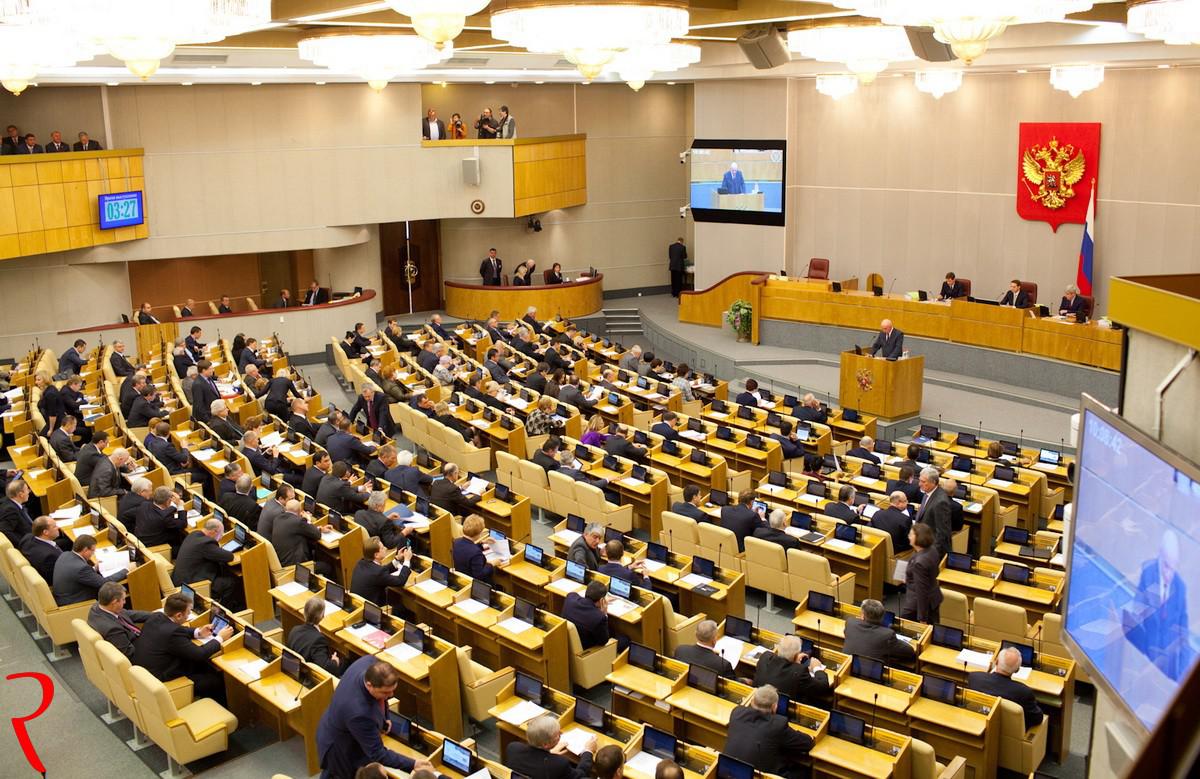It is no secret that Putin is obsessed with the idea to restore the Soviet Union or create a new version of the Russian empire. Such narratives have been promoted in Russian society for years. The key goal of this propaganda was to regain Ukraine under the control of Russia. Thus, armed with the motto of Leon Trotsky “Without Ukraine, there is no Russia!”, the state machine of the kremlin built a completely oxymoronic image of our state. They use the labels of the “brotherly people”, “the younger prodigal brother” and “an enemy that seeks to destroy Russia” at the same time. Juggling different narratives depending on the needs, propaganda boosted real hysteria around Ukraine.
The so-called state duma of the Russian Federation is no exception. Although they have not had real power for a long time now, the state authority is still important from the point of view of the functioning of a controlled democracy. We analyzed the transcripts of the meetings of this body since January 1, 2014 and found that the “discussions” focus on Ukraine, Ukrainians, and other standard narratives.
That's right, for the deputies of the state duma of the Russian Federation, we have always been at the center of attention. If we compare references to Ukraine and Ukrainians with references to other states and their citizens, we get a phenomenal indicator — we have been talked about more than 7,000 times. On the other hand, the United States and Americans were mentioned almost 4,600 times, and the long-lost Soviet Union was mentioned 3,200 times. It is noteworthy that the NATO that “wants to destroy Russia” and the European Union have been mentioned about as many times as Armenia or Moldova. As to Syria, it attracted more attention of the deputies than the “brother” Belarus.
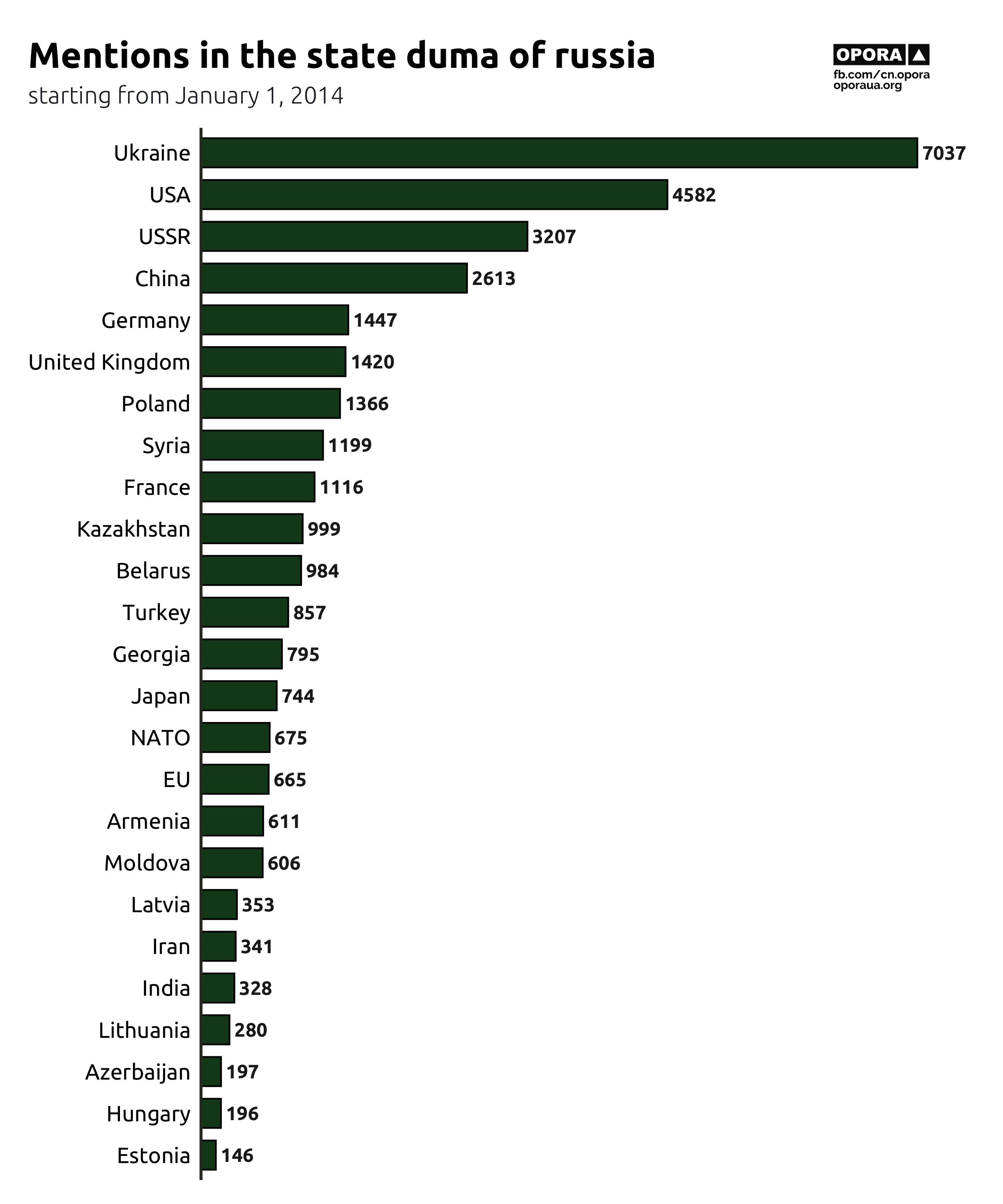
When we analyze the daily mentions in the transcripts of the state duma, it turns out that Ukraine was mentioned at least once in 80% of cases, and this is 511 out of 640 days when deputies had their sessions. The most active RF deputies spoke about our country since the annexation of Crimea, and at the beginning of the war in Donetsk and Luhansk regions. Even the beginning of a full-scale invasion did not exceed the levels of 2014.
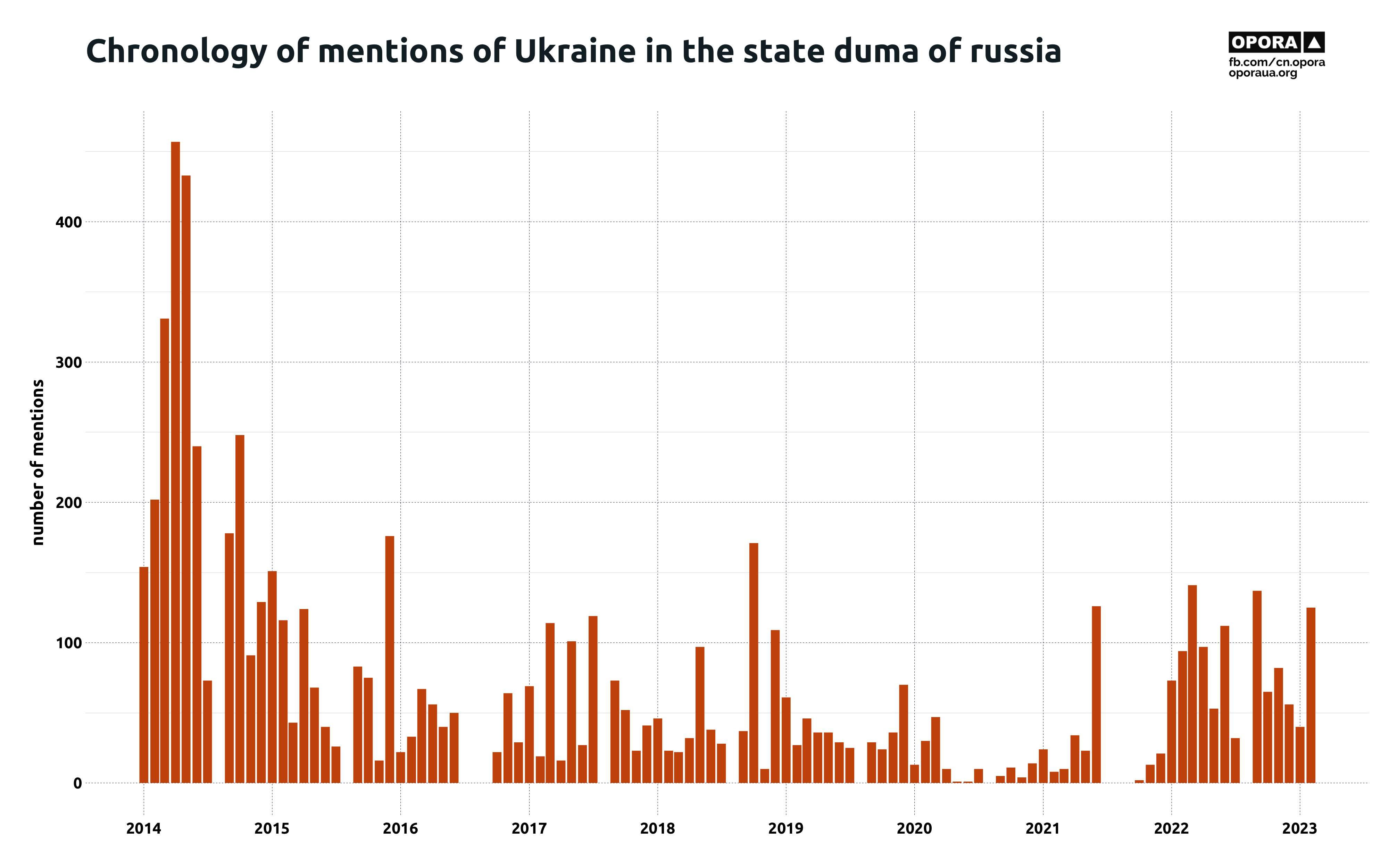
We can't say that about NATO. With the beginning of a full-scale invasion, the North Atlantic Alliance is much more likely to appear on the agenda. The narrative of the aggression of the "collective West" should be heard everywhere.
For example, at the recent meeting, the head of the State Duma Committee on Defense, Andrei Kartapolov, said: “In 2022, our country faced unprecedented hybrid aggression from the United States and NATO. The so-called civilized West, through the hands of the Kyiv authorities, unleashed a full-scale military conflict against Russia, victimizing thousands of civilians. And there could have been many more of them if Russia had not outstripped the ukrowehrmacht at the beginning of another bloody venture.”
On the other hand, in November 2015, the State Duma was concerned about “the involvement of Montenegro into NATO”, and in March, 2016 — that “Latvia was turning into a zone of increased NATO activity.” Thus, back then, Alexei Pushkov, the head of the State Duma Committee for International Affairs, did not forget to mention the Nazis in Ukraine: “I must say that, on the other hand, ultranationalists and neo-Nazis, the similar organizations in the Baltic States and in Ukraine are the most active advocates of NATO's military activation in their territories.”
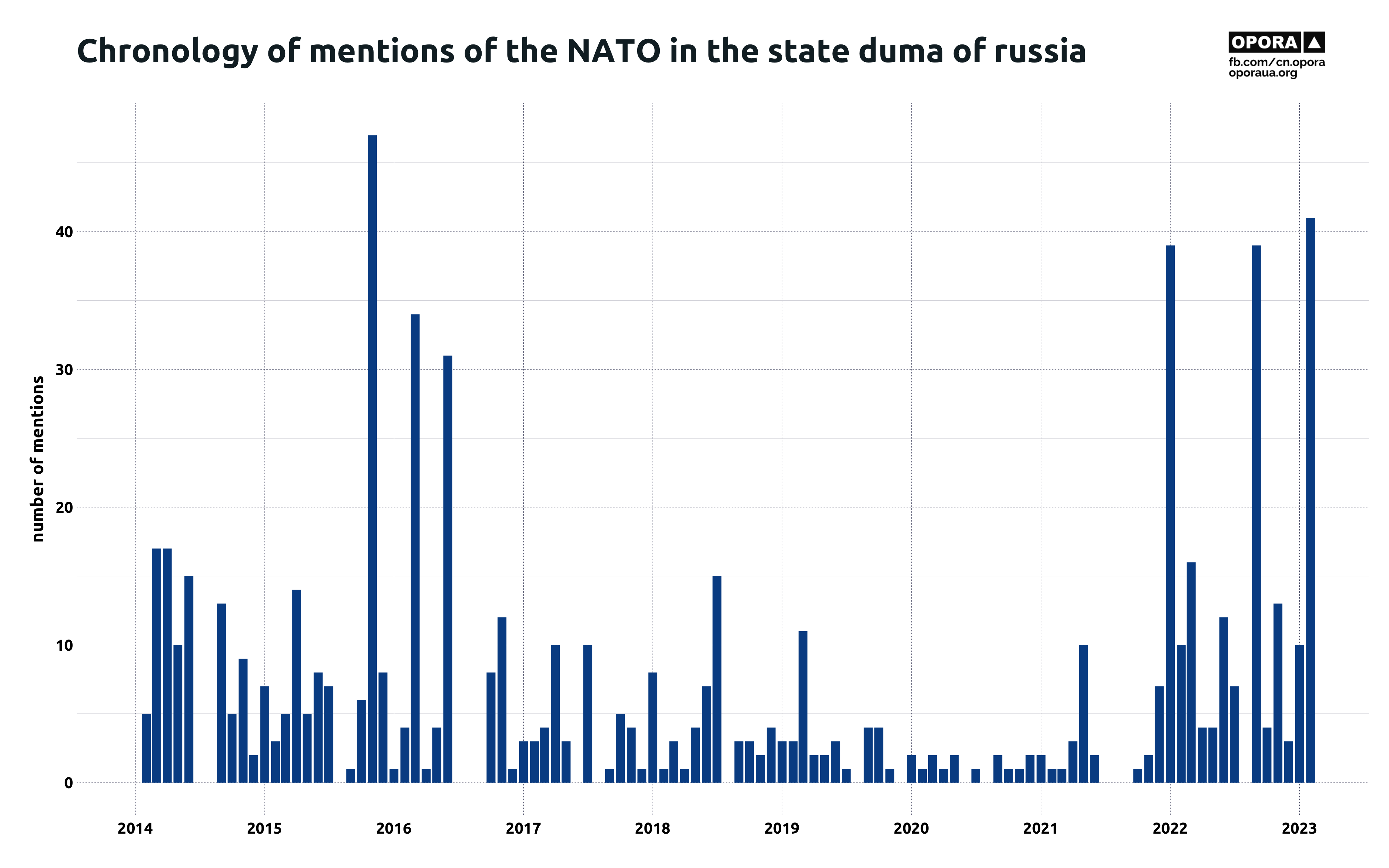
Instead, the United States was regularly mentioned in the State Duma: it could be about “global domination”, about the “American propaganda machine”, and about “aggression in Syria and Yugoslavia”.
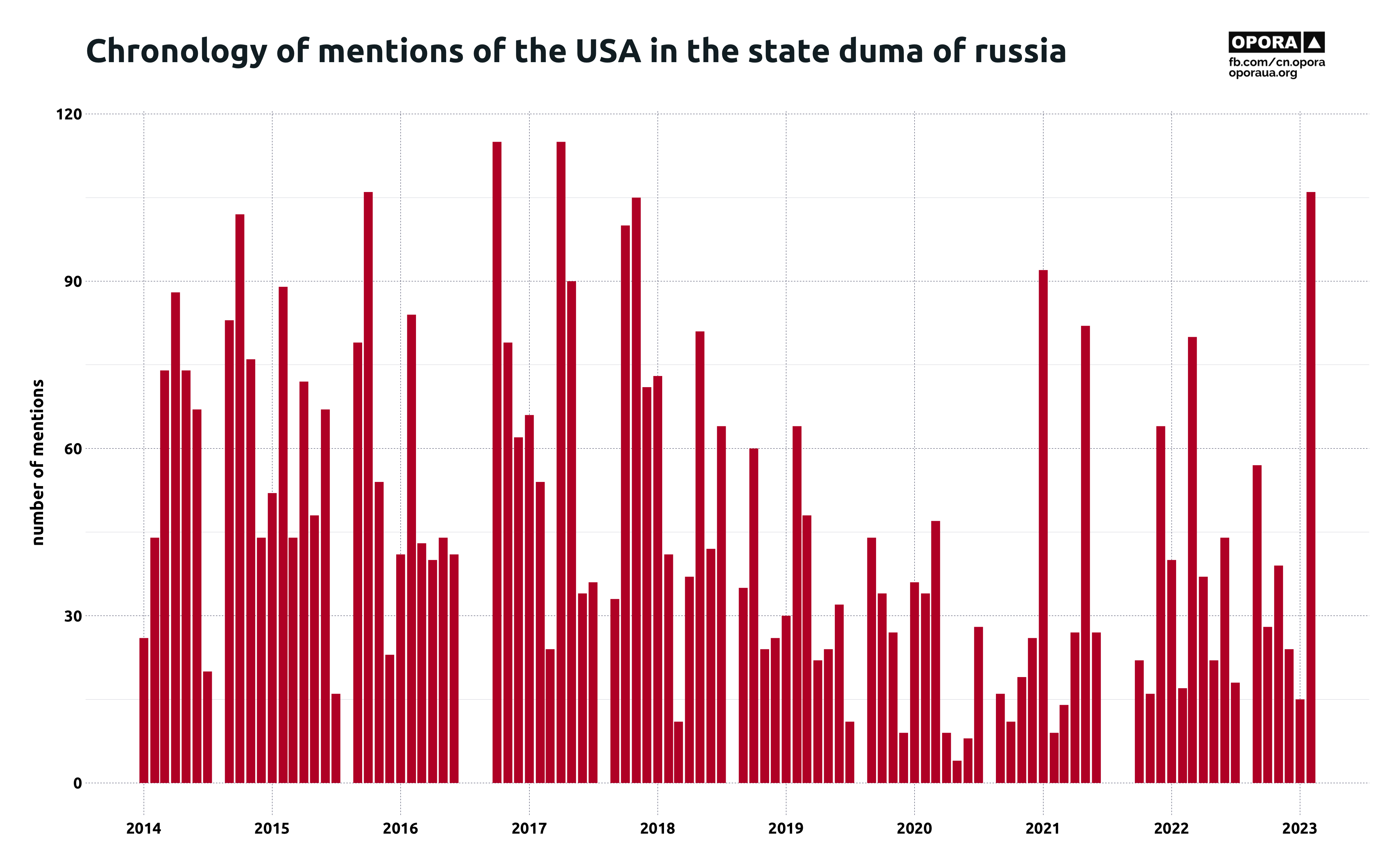
Although the state duma spoke about Ukraine and Ukrainians the most, the presidents of our state have been mentioned less frequently than the leaders of other states. Of course, the puppet deputies of the Kremlin most often mentioned Putin. Lenin and Stalin were the second and the third most mentioned names, although with a large gap below the top name. Next follow, the US ex-President Donald Trump and former President of Ukraine, Petro Poroshenko. Furthermore, Viktor Yanukovych was mentioned almost three times more often than the self-proclaimed president of Belarus, Aleksandr Lukashenka.
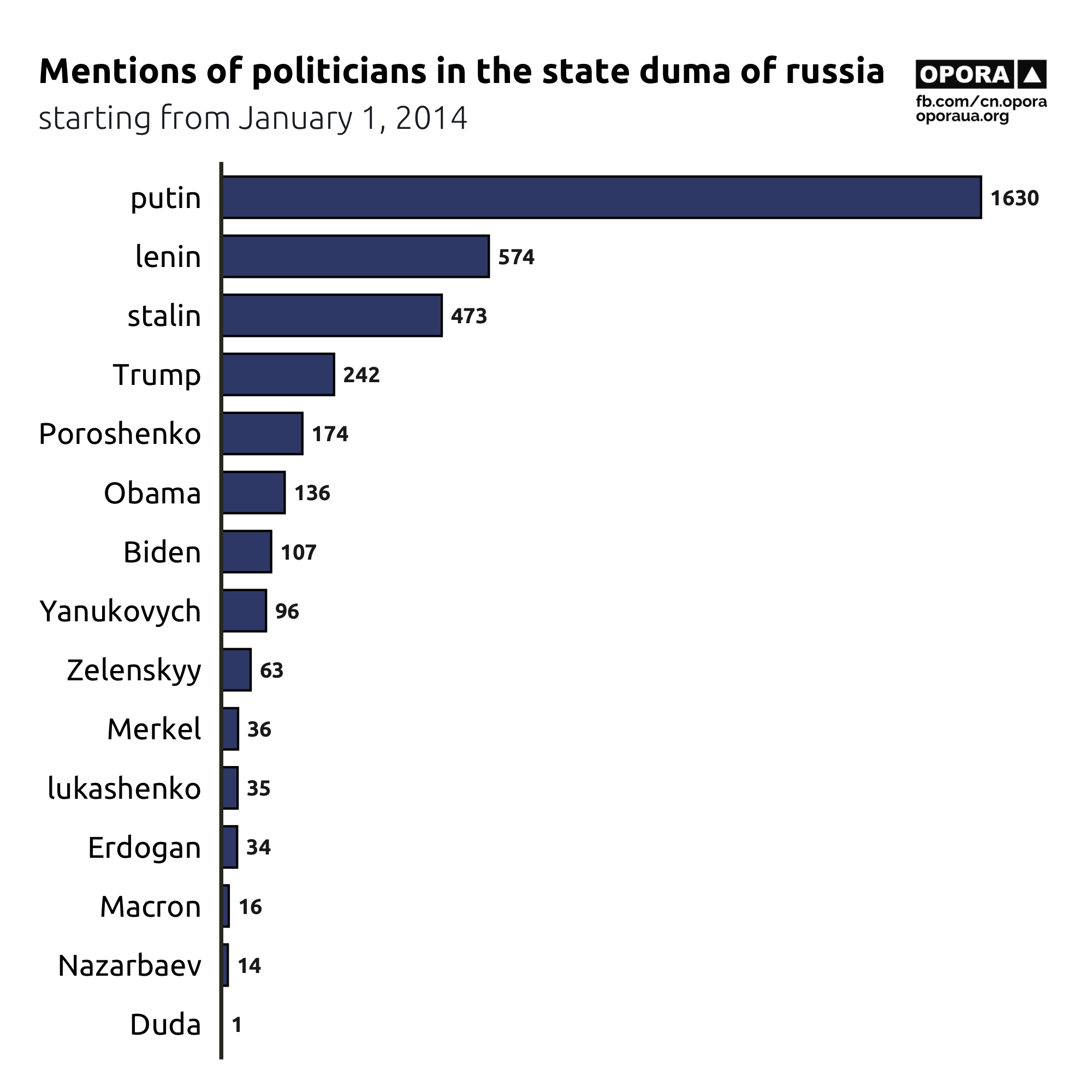
It is also surprising how well the deputies of the State Duma of the Russian Federation know Ukrainian geography. We found mentions of hundreds of settlements from our country: Kyiv, Donetsk, Luhansk, Odesa, Kharkiv, a.o. The capital of Ukraine, among others, was mentioned five times more often than Berlin. The results do not even account for the narratives about “Kyiv punishers” or “Kyiv nationalists”. Besides, the temporarily occupied Crimea was mentioned by the deputies of the State Duma more than 5,000 times!
It is interesting to note that even the westernmost regional center of Ukraine, Uzhhorod, was mentioned at several meetings. In particular, back in March 2014, Vladimir Zhirinovsky claimed that he allegedly “traveled around Uzhhorod a hundred times — everyone speaks Hungarian or Russian there, but it has nothing to do with Ukraine!”.
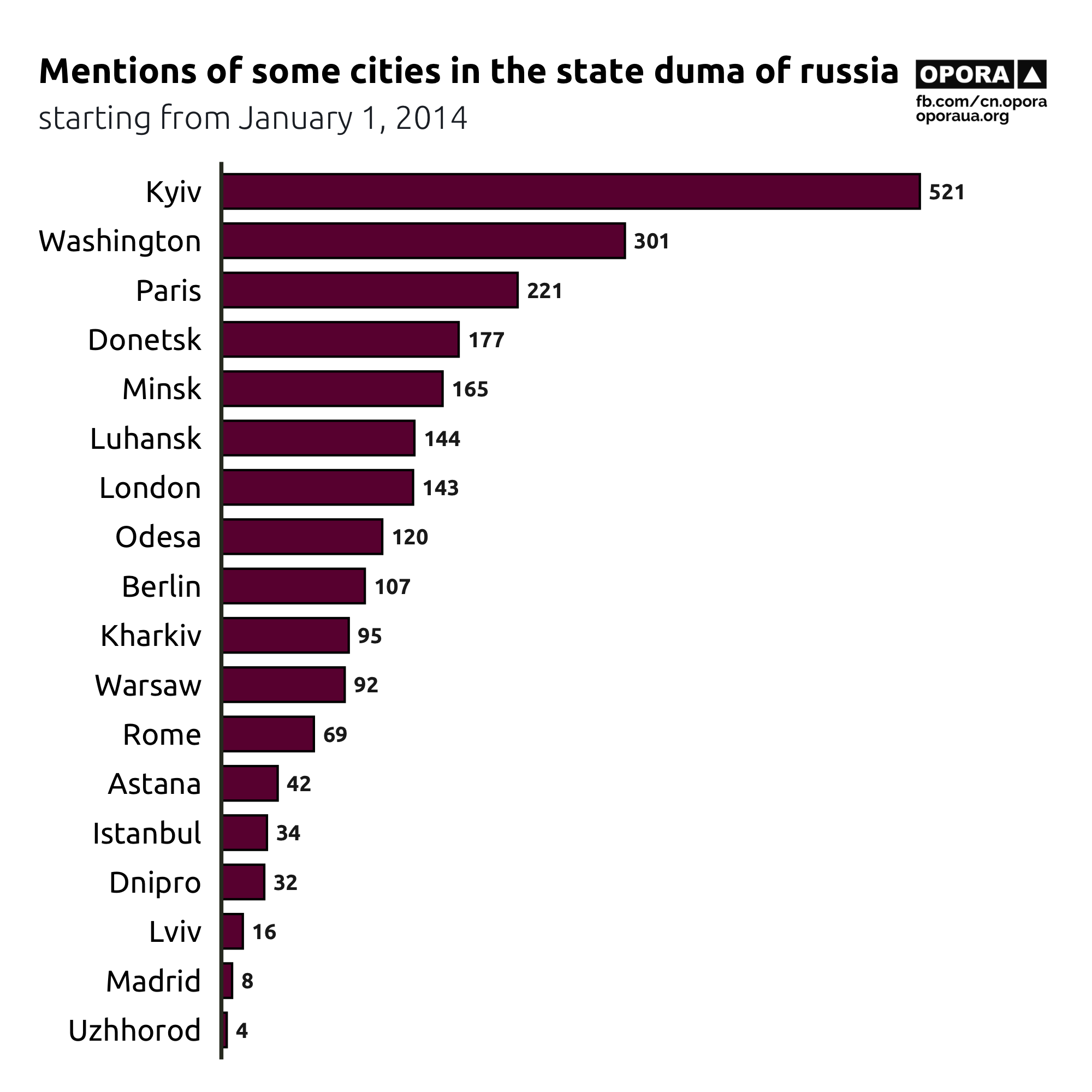
Finally, we could not but analyze the popular Kremlin narratives about Banderovites, punishers, fascists, or nationalists. We found more than 2,700 references to these keywords. Most often, it was about fascism, Nazism, or neo-Nazism. Another regular mention at the state duma was Hitler — 275 times, Stepan Bandera or Banderovites — 229, “Right Sector” — 69, “Azov” — 49, punishers — 33. At some points, all these words were intertwined into one solid phrase, as in the case of Vyacheslav Nikonov. In April, 2014, he said: “The new government came from the Maidan, where the main slogan was not 'Glory to the European Union!', but 'Glory to Ukraine! Glory to the heroes!' it is the call of the Banderovites, the SS division "Galicia," the punishers who killed hundreds of thousands of Poles, Hungarians, Jews, and Russians; this is 'Heil Hitler!' in Bandera-style; this is what was shouted on the Maidan by Yatsenyuk, Turchynov, Poroshenko, and Tymoshenko."
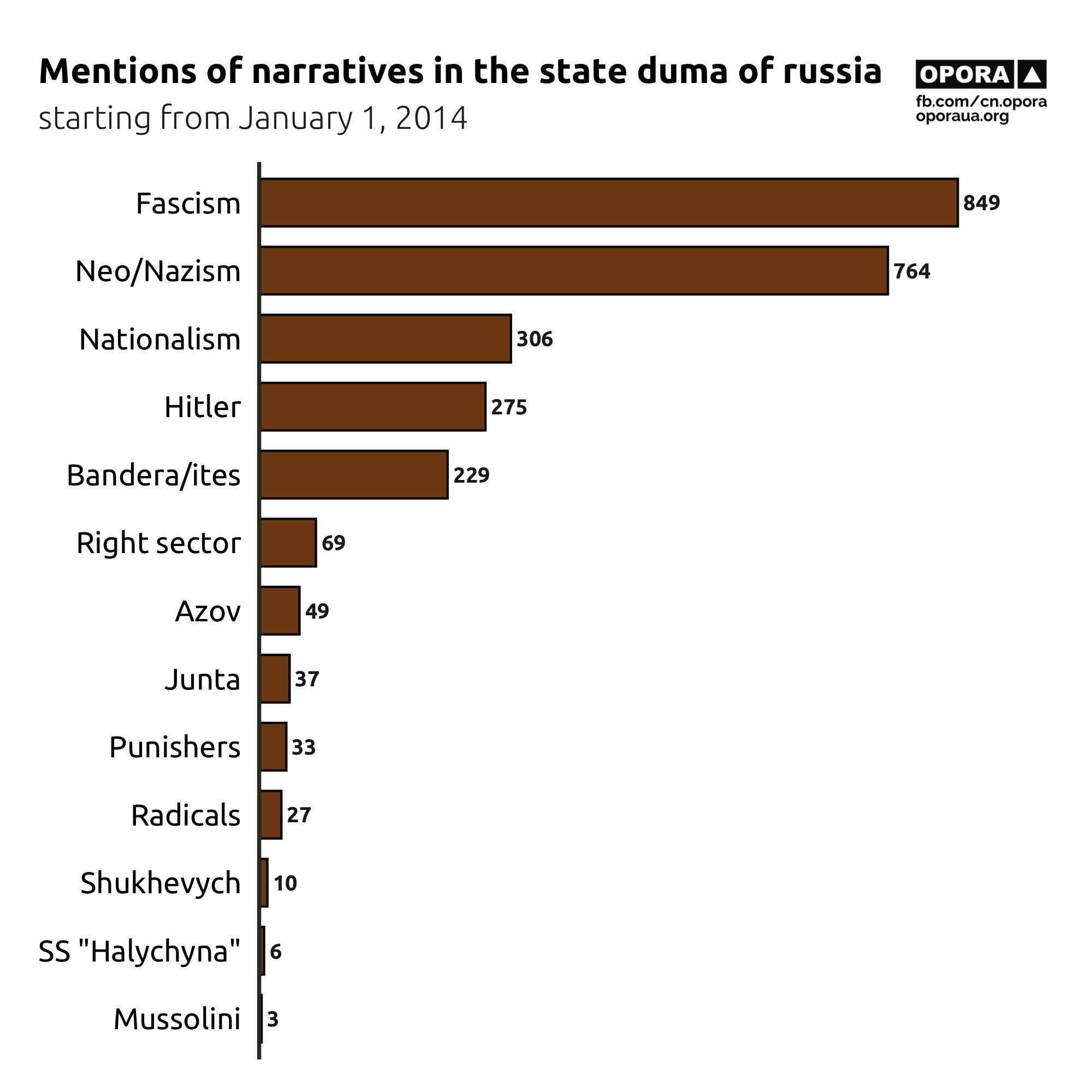
Thus, even the superficial analysis can help understand that the rhetoric in the lower house of the Russian so-called parliament has become a stronghold for propaganda, rather than the political discussion. And Ukraine has been by far the central topic of discussion.
In the next review, we will consider in more detail the narratives that were spoken in the state duma after the full-scale Russian invasion.
